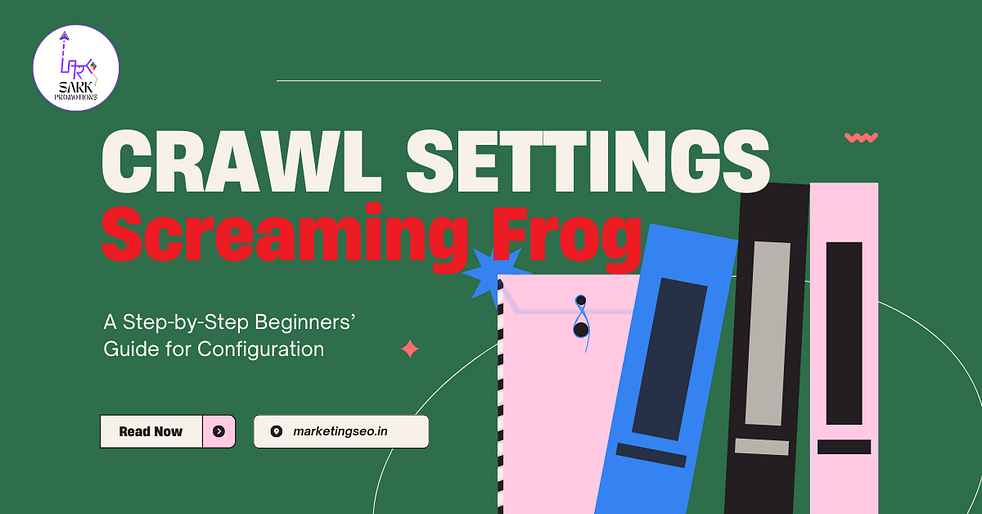Key Highlights
- Find out which SEO tools are best for key jobs like keyword research, link building, and technical SEO.
- Get helpful tips on how to use both free SEO tools and paid ones together, so you get the most for your money.
- Learn real advice for picking the right tool for each job, like ones for on-page fixes and SEO audit tools.
- See hand-picked tips made to help you boost organic traffic and get better search engine visibility.
- Know what things to check—like pricing, how the tools work with others, and if they can grow with you—before you pick one for your business.
- Find simple, easy-to-follow directions for putting together your best set of SEO tools, so your work can be both fast and right.
Introduction
In 2026, selecting the right SEO tools saves time and boosts rankings amid AI-driven search changes. This guide updates our tool recommendations for Indian digital marketers, focusing on affordable stacks with free tiers, WordPress integration, and local SEO support. Prioritize tools like SEMrush for competitor analysis and AIOSEO for on-page tweaks.
To do well in today’s search engines, you need the right tools for every part of SEO. It is important to use strong tools for keyword research and technical SEO. The right tools can help make your website easier to find on search engines. Getting organic traffic has now become more complex. Old ways do not work anymore. You will get ahead if you work with up-to-date and efficient platforms. If you use these the right way, you can look at important SEO data and also do better than your competitors. Good tools also help you plan smart ways to get better results for your site. In this guide, you will see how to use the best SEO tools to help your site become more visible and get good results.
SEO Tool Stack: The Right Tools used for SEO Tasks
To do well in SEO, you need tools that help you with important tasks. The right set of SEO tools helps you with things like keyword research, tracking your rankings in search engines, and looking at backlinks. Picking tools that are made for things like on-page changes or technical check-ups helps you find valuable insights. This helps you make your SEO work better.
The best SEO tools are simple to use and have what you need. Some can do many things, while others focus on just one part of SEO. It does not matter if you like all-in-one tools or more focused ones. Having the right tools helps you keep up with changes in SEO. They also help you get more organic traffic and keep your rankings high.
1. All-in-One SEO Platforms: Semrush
Semrush is still one of the top tools for SEO. It has advanced features for competitor analysis, rankings, and PPC campaigns. The Domain Overview tool is great for checking what your rivals are doing in SEO. It lets you track organic traffic and find keyword data that helps you understand which keywords lead to success. With this, you can plan new content based on topics that already work well.
The Advertising Research tool helps you look at how much your competitors spend on ads. For example, this tool shows which PPC keywords you should also try to target with organic search. That way, you focus on keywords that can bring in more people and get good results. You can use advanced filters in the tool to remove branded terms. This makes it easier to see only the helpful opportunities.
There is a lot of useful data, but the interface might be hard for beginners. There are almost 50 parts in this tool, which can make it look too busy. Still, if you are one of the experienced marketers, Semrush is a must-have for SEO, PPC, and social media work. It gives you everything you need to boost your results.

2. All-in-One SEO Platforms: Ahrefs
Ahrefs is a strong tool for people who work in SEO and want to get more organic traffic. It helps you look at keyword data, backlinks, and see what your competitors are doing. The big database in Ahrefs lets marketers check how their rivals get their backlinks. You can also use it to find new people or websites to work with.
There is a feature called Content Explorer. This helps you see which topics are popular and what kinds of content do well in your field. With Ahrefs’ metrics, you get clear facts, like keyword difficulty and search volume, so you can pick better keywords and plan your content ideas.
You might need some time to get used to all the things Ahrefs can do, but it is still one of the best places for SEO work. There are new AI tools too, that help with grouping keywords and giving you tips made for you. This makes Ahrefs even more helpful for anyone who wants to grow their site with SEO.
3. All-in-One SEO Platforms: Moz Pro
Moz Pro is a tool that gives you solid data and keyword difficulty checks. This helps marketers find the best ways to improve their rankings. You can try a free version, which shows off some basic SEO metrics. The paid version has more features and is designed for larger tasks.
Moz is known for checking backlinks. This is very helpful for marketers who work in tough markets. Finding good links is key if you want better visibility. With Moz Pro, you get to see how your SEO work changes your rankings over time. This helps you come up with long-term plans for success.
The platform’s interface might not be the easiest to use. There are other tools that seem simpler. Still, Moz gives you solid data, especially in English-speaking markets. If you want strong results and clear reports, Moz Pro is a good choice for many marketers.
4. Keyword Research Tools: Google Keyword Planner
Google Keyword Planner is one of the most easy-to-use tools for keyword research. It gives you good and clear information about search engine traffic. This tool works well for both beginners and marketers. You can use it to find the keywords that get the most traffic and focus on helpful metrics for your area.
The tool is free. Google Keyword Planner shows search volume, how tough the competition is, and trends you can use going forward. When you enter a word like “best coffee brands,” you get keyword suggestions that help you make better content plans. With these helpful insights, it is easy to improve your SEO ads and other campaigns.
Other tools may offer more features, but Google Keyword Planner’s deep link with Google means you get the most trusted data. This tool is great for coming up with new ideas. It is a must-have in any SEO toolkit if you want to grow your online work.
Keyword Research
Use SEMrush or Ahrefs for India-specific keyword data with low-competition long-tails; Ubersuggest suits beginners at ₹2,000/month. Add Mangools (KWFinder) for SERP analysis. These handle NLP and intent clustering essential post-2025 updates.
| Tool | Best For | India Pricing (₹/mo) | Free Tier |
|---|---|---|---|
| SEMrush | Competitive gaps | 8,000+ | Limited |
| Ubersuggest | SMBs | 2,000-3,000 | Yes |
| Ahrefs | Backlinks + keywords | 7,000+ | No |
Technical Audits & On-Page
Screaming Frog crawls large sites for broken links; pair with Google Search Console (free) for Core Web Vitals. For WordPress, Rank Math or AIOSEO offers schema and TruSEO scoring—ideal for your multi-site management.
5. Keyword Research Tools: Ubersuggest
Ubersuggest is good for keyword research and works for businesses of any size. It gives a free trial, so you can start with keyword ideas, and if you go for the paid plans, you get more features like competitor analysis and search term groups.
Ubersuggest also has word count tips for making content and checks backlinks. It is made to make SEO easy for marketers. If you search for “healthy meal ideas,” you get related options that help you pick strong blog topics.
The tool is simple to use, so both new and experienced marketers can get useful metrics without a problem. Its interface is easy to understand, which helps you find keywords fast, and things like seeing old data side by side make it even better to use.

6. On-Page SEO Optimization: Surfer SEO
Surfer SEO analyzes top rankers for NLP terms; integrate Yoast or Rank Math plugins for real-time edits. AI tools like Frase boost GEO for Perplexity/AI visibility.
It also helps you figure out what word count you should use for your blog post by looking at what the top pages are doing. For example, if you want to write a blog about eco-friendly travel tips, Surfer SEO shows you which keywords and phrases you should add and how they fit in naturally.
Surfer SEO is simple to use and brings a lot of power to people who want to get better at on-page SEO. Some people think the pricing is high, so small businesses might not go for it. But, what you get from the metrics and insights can help marketers and their blogs see real gains in their rankings over time.
7. On-Page SEO Optimization: Clearscope
Clearscope is an all-in-one content optimization tool. It helps you get higher rankings by showing you keywords that match what your audience wants. You can see what’s trending and find out which topics are driving more organic traffic. This helps you know what to write about.
For example, if you talk about “remote working tools,” Clearscope will give you ideas for subtopics, like “best apps for team collaboration.” This can help boost your content’s relevance, user engagement, and visibility.
Clearscope works well with Google Docs, so you can make changes easily when you work with your team. Any business, big or small, can use this tool to get great insights and simple ways to improve their content strategy. Now, getting better rankings isn’t hard when you have the right keywords and a tool like Clearscope.
8. Technical SEO Analysis: Screaming Frog SEO Spider
Screaming Frog SEO Spider is known for being great at technical seo. It helps by acting like search engines to see how they crawl your website. This tool is good at finding the important problems, like broken links and pages with the same content.
You can set it up to make your site check easier. People using it can choose if they want to check certain urls or look at bigger parts of the site during technical reviews. For example, ecommerce sites can use it for product category pages. This way, they can find problems with indexing images or mistakes in how people move on the website.
Screaming Frog works well with google analytics and other APIs. This makes it very useful for reports that need different kinds of information. Although the tool is often used by seo experts, Screaming Frog is a key tool for checking the health of any site. It helps you fix problems so you can improve how you show up in google and increase your visibility.
9. Technical SEO Analysis: Sitebulb
Knowing how well your website works is very important. It helps you make the user experience better and bring in more organic traffic. Sitebulb is strong when it comes to technical SEO. It gives valuable insights about issues in your site with full audits. The interface is easy to use, so marketers can see keyword data together with audit results without any trouble. The tool also gives you helpful features like deep competitor analysis and reports by module. These options show you where you can get better. Sitebulb stands out in the field of SEO. It is a good choice for anyone who wants to boost their technical SEO and make their site stronger.
10. Rank Tracking Solutions: AccuRanker
AccuRanker is an easy-to-use tool for keeping track of keyword data and keyword rankings in different search engines. The simple interface lets you see valuable insights fast, which helps you with competitor analysis and lets you make better choices about your SEO work. You get solid data you can trust to plan your next steps.
AccuRanker also lets you work with metadata. You can update title tags and meta descriptions to help your site get better visibility on search engines. The platform can be used by both beginners and seasoned marketers, so it’s good for anyone. As your website gets bigger, AccuRanker can grow with you, too.
11. Rank Tracking Solutions: SERPWatcher
If you want a tool to track your search engine results with precision, SerpWatcher is a great pick. It gives you solid data for your seo needs. Marketers can easily check their keyword data and see how they are doing against their competitors.
You get real-time updates, and the data visualization makes it simple to look at all the important numbers. This makes competitor analysis easy for both beginners and those with experience. The interface is easy to use, so you do not get lost in the features.
SerpWatcher is built to give valuable insights for your website. You will get good results and useful information, without things becoming too hard or confusing. This platform helps you build a strong seo plan with its focus on clear keyword data and the steady flow of solid data.

12. Content Ideation & Research: BuzzSumo
Using BuzzSumo can change how you come up with ideas for content. It gives you valuable insights about what is trending on social media and in search engines. This tool helps you with keyword research. Marketers can use it to find the best keywords and see which kinds of content people like most.
BuzzSumo has a simple interface. It lets you do competitor analysis and find backlinks that do well. This is great for your link building work. The way BuzzSumo shows data helps you see what is working. With this, you can make content that is both interesting and relevant for your audience.
13. Content Ideation & Research: AnswerThePublic
AnswerthePublic is a keyword research tool that helps marketers do better with content ideas and research. It shows the real questions and phrases that people look for online. Marketers get valuable insights into what users search for, so they can make blog posts and other content that fits their audiences. The platform also helps you see what topics work well for other people, which lets you plan content in a more smart way.
Marketers use this keyword research to improve things like title tags and meta descriptions. It helps in picking better topics for every blog post. Using these tools, you can get more organic traffic and make your blog more visible on search engines. In the end, AnswerthePublic makes it easier for marketers to know what people want to read, so their work can reach more people.
14. Link Building & Outreach: BuzzStream
BuzzStream helps make link building and outreach much easier for marketers. The tool is great at helping you build backlinks and keep track of all your important contacts. Its campaign management features and email templates help you manage your outreach work without any trouble.
You can see keyword data and do competitor analysis right in the tool, which helps you stay ahead. The interface keeps your external links and contacts well-organized, so it is simple to keep in touch with people or work with the rest of your team. BuzzStream works well with other marketing tools, too. All these things together give you a better user experience and help you get more visibility in search engine results.
15. Link Building & Outreach: Pitchbox
A good link building plan needs a strong outreach tool. Pitchbox really helps with this. It has handy automation features. You can manage your campaigns, keep communications simple, and use competitor analysis to get valuable insights. The tool works with many platforms, which makes it even better for marketers.
Because of this, you have more time to work on making meta descriptions and sending emails that connect with people. Pitchbox has an easy-to-use interface and uses data visualization. This lets you see all your link building work in one place. It helps to get better rankings and more visibility on search engines.
16. Local SEO Tools: SE Ranking
Google Business Profile dominates map packs; BrightLocal for reviews. AgencyAnalytics aggregates GA4 and GSC data for client reports.
For businesses that want to get more visibility in local search engine results, SE Ranking is a good tool to use. This local SEO tool gives you valuable insights about how your keywords are doing. It helps you with keyword research so you can find out what your audience is looking for. SE Ranking also offers features like competitor analysis and detailed reporting.
With this tool, you can make a good plan that improves your metadata, including your title tags and meta descriptions; bring in more “near me” searches towards you. The user-friendly interface makes it easy to keep an eye on your local rankings. SE Ranking is very helpful for marketers who want more organic traffic from people searching online.
17. Local SEO Tools: BrightLocal
BrightLocal is a key local SEO tool that helps businesses improve their visibility in certain areas. It offers tools for building citations and checking them to make sure details stay the same across many sites. BrightLocal lets users follow local keyword performance by looking at search engine results and seeing how their rankings compare to others.
The tool gives valuable insights with its easy-to-use interface. This makes it a good option for marketers who want to boost their local presence and bring in more organic traffic.
18. SEO Reporting & Analytics: Google Search Console
Strong SEO reporting and analytics are key for making a website work better. Google Search Console is one of the most important tools for this. The platform gives valuable insights about keyword rankings, organic traffic, and technical SEO issues. It helps marketers look at their google visibility and find ways to get better results.
Google Search Console lets you look into metadata, check the health of your site, and spot problems that might hurt the user experience. With all these features, the tool gives a strong way to do SEO audits and boost your search engine results. When you use solid data from Google Search Console, it helps you and your team make smart choices for your SEO strategy.
19. SEO Reporting & Analytics: Google Analytics
Google Analytics is a key tool for SEO reporting and analytics. It gives marketers important insight into user actions and how involved they are on a website. With Google Analytics, you can track keyword data and see how much organic traffic your site gets. It also helps you check how well different campaigns are doing. The dashboards are easy for you to change to fit your needs, and you can look at many advanced metrics. All this gives a clear picture of how your website is working. Google Analytics can work well with Google Search Console. This mix makes it easier to see search engine results and helps boost your visibility. Marketers use these features to keep improving and to support strong link building plans, so they get even better results in the future.
20. Site Speed & Performance: Google PageSpeed Insights
Checking how fast your site loads is key for SEO. Google PageSpeed Insights is a great tool for this job. It looks at your webpages using different metrics. The tool gives you valuable insights about loading times and what affects performance. Its interface is easy to use, so marketers can spot which parts need to get better. You may need to make images smaller or use less JavaScript. The data visualization it offers helps you to see what to fix fast. By using this tool, you can improve user experience and bring in more organic traffic. A faster site also helps your rankings, as it matches what people want from Google.
21. Site Speed & Performance: GTmetrix
Checking how fast your site loads and how well it runs is key if you want to give a good user experience and to help increase your organic traffic. GTmetrix is a great tool for this. It gives you clear metrics that show where your webpage might be slow or where there are problems. You can look at load times, find issues, and get tips on how to make things better.
The GTmetrix interface is easy to use and has helpful data visualization features. You will see things like waterfall charts and performance scores. These make it simple to look at your site’s performance fast. The key data helps you understand how your site works.
When marketers use the insights from GTmetrix, they can boost their webpage visibility in search engine results. Making changes to improve speed and other factors can lead to better rankings. It also supports seo work like link building and technical seo. This way, marketers can improve both rankings and user experience for their websites.
22. Structured Data & Schema: Schema.org Markup Validator
Using the Schema.org Markup Validator can help you a lot when you add structured data to your website. The tool lets you check if your schemas are right, and it helps make sure they follow the rules you need. This can help you show up better in search engine results. The interface is easy to use, so you can put in your JSON-LD, Microdata, or RDFa without worry. If you use the schema the right way with this validator, your structured data can lead to richer results and also give people a better user experience when they visit your site. For marketers, it gives you solid data and valuable insights. You then get to know how your webpages can fit better with what search engines want and improve your visibility even more.

23. Structured Data & Schema: Merkle Schema Markup Generator
Using the Merkle Schema Markup Generator helps marketers make structured data with ease. This tool has a simple interface that anyone can use. It makes setting up JSON-LD schema easy to do, so your metadata always matches your content. By using this generator, you can make your website more visible in search engines. That can help bring in more organic traffic to your site. The tool’s easy-to-use interface lets you work with templates fast and simple, making it quicker to put rich snippets in place. You also get valuable insights to see how your schema, metadata, and layout can change your rankings and click-through rates.
Factors to Consider When Building Your Professional SEO Tool Stack
When you build an SEO tool stack, you need to think about a few things. Start by looking at the pricing and how subscriptions work. There can be some free versions that give you valuable insights without you having to put in much money. It is also good to pick tools that work well with other marketing tools, so you get better at data visualization and work faster.
You need to make sure your stack can grow with your website. As the site gets bigger and needs change, the right tools will help you keep up. This way, you get better at SEO, do better in search engines, and give users a good experience.
Pricing and Subscription Models
Looking at the pricing and subscription models of SEO tools is important if you want to save money and make smart choices. Many platforms give you different plans, so marketers can pick the one that fits their needs and budget the best. Free versions often have only basic features. When you go for paid subscriptions, you get more tools like advanced analytics and ways to check what your competitors are doing. It is a good idea to check these models and see which one matches what you want, like getting more organic traffic or making your link building better. Always think about the potential return on your investment when you compare plan prices, so you choose the best one for your needs.
Integration with Other Marketing Tools
Connecting SEO tools with other marketing tools helps everything work better together. For example, when you link a keyword research tool to social media, you can use keyword data to set up more targeted campaigns. If you bring your link building tools together with your email outreach tools, it makes it much easier to talk to people and also helps you reach out to them better. When all of these tools work together, your visibility in search engine results goes up a lot. Having the right mix of marketing tools gives marketers valuable insights into how things are going in every channel. Doing this brings in more organic traffic and also helps make the user experience better.
Scalability for Growing Websites
Choosing SEO tools that can grow with your website is important for long-term success. You need a flexible platform that can handle new needs as you do things like keyword research, look at more metrics, or build up your backlinks. This way, when your organic traffic goes up, the tool will still help you find useful information without slowing down. You should go for tools that offer different subscription options, so you can get extra features as you grow. These can include better reporting or smarter site checks. This will help your SEO strategy work well in the future.
Google’s Native Free Tools for SEO and Their Relevance
Google has many built-in SEO tools that help marketers who want to boost their website visibility. With Google Search Console and Google Analytics, you get a lot of helpful information about your website. These tools show how your site is doing, so you can do keyword research and competitor analysis in the right way. You can also use them to fix technical SEO items like meta descriptions and title tags. When you use Google’s tools, you will be able to check your organic traffic, look at important metrics, and keep your site on track with search engine rules. This means your site can move up in the rankings in a better way.
Automation and Integration Capabilities of SEO Tools
Using automation in SEO tools helps marketers be more efficient and get better results. With these tools, people can spend less time on tasks they do again and again, like reporting and collecting keyword data. This means they have more time to focus on planning and look at what their seo work is doing. It is good to connect seo tools with other marketing platforms. When you do this, real-time data can go from one place to another, and the team can work together better. For example, when you link rank tracking tools with analytics software, you can see valuable insights about metrics that show how you are doing. This helps marketers get more organic traffic and make the user experience better for everyone who visits your site.

Conclusion
Navigating the world of SEO tools can help you make your online presence better. When you pick the right tools for what you need, it be for keyword research, link building, or technical SEO, you get the valuable insights needed to boost your rankings on search engines. Keep in mind, when your tools work well together and grow with you, you have a better user experience as your site gets bigger. In the end, using the right SEO tools helps marketers build steady organic traffic and gives you an edge over others out there.
Frequently Asked Questions
Q1. What is an SEO tool stack?
A combination of tools that covers your key SEO workflows: measurement, technical audits, content optimization, and authority growth.
Q2. Do I need both Google Search Console and GA4?
Yes. Search Console explains search visibility; GA4 explains on-site behavior and conversions.
Q3. What’s new in Search Console that saves time?
Search Console Insights and AI-powered configuration for Performance report analysis.
Q4. Can I use Google’s Indexing API for normal blog posts?
Officially it’s limited to specific page types (JobPosting / BroadcastEvent requirements).
Q5. How should I approach AI Overviews / AI Mode?
Follow Google’s site-owner guidance and track impacts through a combination of SERP feature monitoring + Search Console trends.





Pingback: SEO Tool Stack for Freelancers on a Budget: Complete Guide 2025